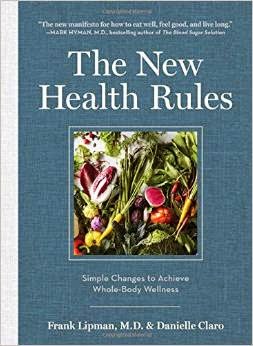If one advances confidently in the
direction of his dreams, and endeavors to live the life which he has
imagined, he will meet with a success unexpected in common hours. - Henry David Thoreau
With those words, transcendentalist Henry David Thoreau outlines for us how to live. I've shared these thoughts with my students many times, and I've written them in my journals numerous times as well ... and now, right here right now in 2015, it is time for me to start living them. Thoreau's words encapsulate just a bit of inspiration that has inspired a thousand self-help books, most notably the original tome,
Norman Vincent Peale's
The Power of Positive Thinking. But none of those works have really expanded upon the simple significance of Thoreau's basic advice - "live the life you have imagined."
While I am proud of my life's work to the age of forty-five, and I am quite content with my hard work and success and current position in life, I am not, alas, "living the life I have imagined." I am, of course, in a good spot professionally, working in the best of all positions. My job as a high school administrator still allows me
the opportunity to teach one class, which is a privilege many in administration must give up to pursue the leadership opportunity. And, I am blessed to still work with students directly as a GT Coordinator and sponsor of our Youth Advisory Board. Additionally, I work with great people in areas of tech support, staff development, and school culture. I really couldn't be happier with my job.
That said, there's more I've always planned to do.
For many years, I've told people that when I grow up "I want to be
David Brooks of the New York Times." That, or perhaps,
Malcolm Gladwell of the New Yorker and "Outliers" fame. Basically, being a writer and speaker and cultural critic is my dream job. I've always enjoyed researching and writing and, basically, passing on information to others. That's why I am a teacher ... and I am fairly confident that I am quite good at what I do. But, for as long as I've been teaching, I've always been waiting for that moment when the writing/speaking career develops out of something I've written. For many years, I mistakenly thought myself a novelist. It took a friend who really is a novelist (though shockingly unpublished as of yet) to point out that I should be focusing on the
non-fiction success that I've had and
pursue that option. Really, duh. It was a surprising lack of self awareness on my part.
Yet, I've never followed through on any of the big ideas I have for writing, and I spend more time reading
people I admire and journaling about potential books than I do actually writing them.Granted, I do a fair amount of writing on several blogs, and I am regularly posting and passing on links and thoughts via Twitter and Facebook. This blog, A Teacher's View, was my original idea for my forum as a cultural critic, and I also began two others.
Mazenglish is my blog which is supposed to focus primarily on my knowledge, skills, and insight as an English teacher. The term refers to the unique qualities of my class which have made it popular and successful for so many years. After that, I started the blog
Views on the Village as my Colorado blog which was going to be an eye on my community. Originally, I thought it would be focused on politics and community, and then I expanded it into culture, hoping to use it as list of my favorites and suggestions about the world in which I live. Despite my desire to write these blogs, and use them to create an audience for my work, I have not adequately maintained them, or developed an efficient system for doing so. Yet, I am not ready to abandon them, and I have hope that they can become more significant.
So, ....
Yeah, so.
So, I like my job, and I can't complain about my life, but I had a different vision of success in my life, and my daily-ness does not look like the life I had imagined. And, I will not be truly happy or content or satisfied until I am doing all that I have planned and am capable of doing. There are articles and books to be written, presentations to be crafted and made, products to be produced, businesses to develop, and refinements to my daily living experience to be crafted. And, 2015 should not end with the resigned disappointment and acceptance of "adequate" that has been the conclusion of previous years. And, I am hoping that this blog keeps me focused and honest and on track. Last year I turned forty-four, and it seemed like a convenient marking point for my next phase. I'd graduated college at 22, I'd achieved career success in public education at 44, and it was time to begin "Act III." Act III is a writing career and the role of "independent scholar" and public commentator.
So, here's to Act III. Here's to more writing and "advancing confidently ... to live the life I have imagined."

